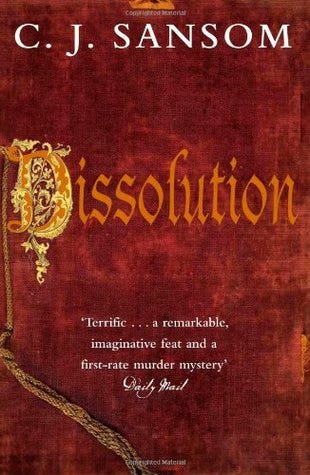Enigma
A poem based on a poem...based on a poem?
There’s a poem by Betsy Sholl, Poet Laureate of Maine, called “Genealogy.” We read it in a writing class I took a few years ago. In it, the speaker uses metaphors to describe her parents - the ways they were alike and different, the way their relationship shaped her. It’s a beautiful poem, but sad, and it’s hard to read it without imagining how you would have written it. How would you describe your parents (or siblings, grandparents, friends) and the impact they had on you? Which makes for a very good writing exercise, a fact not lost on the professor.
The assignment he gave was to write a poem “after” Sholl’s Genealogy, either borrowing her exact structure or using it in a looser way. It could be about parents, children, gods, muses, whatever. What I found so interesting about the poem and the assignment is how it’s possible to write any number of different poems about the very same thing. Sometimes our reflections might be melancholy or angry, but on another day they could be playful, or mischievous. Relationships are never just one thing, and particularly with those that exist only in the past, we can look at them from so many different angles.
I recently came across the poem I wrote in class as I was sorting through old notebooks and organizing my writing. I can still see the vantage point from which I wrote this poem, but I can also imagine other places I could sit and look at things a bit differently. I’m tempted to do this assignment over again and see what happens. Maybe you want to try it, too?
Enigma after “Genealogy,” by Betsy Sholl My mother was a cipher and my father a stoic. Together they formed a puzzle I was never able to solve. You can’t really blame me, though. They were a Saturday crossword with Friday’s clues. They were each a handful of pieces from two separate jigsaw puzzles, tossed in a box with no picture at all. May-December barely covers it. But my father was handsome and young for his years, and my mother was pretty and smart. There was a moment when they were both delighted with their own romance, enamored of their unlikely courtship. I’ve read the letters. They were temporarily perfect, situationally ideal. Like a rake employed to hold up the corner of the party tent when the tent pole snapped, it was miraculous, lashed into place like that. Saving the day, letting the party go on. But when the time comes to pack the tent away, you’re not going to roll up the rake with the remaining tent poles. Who would do that? You either buy a new pole or you chuck the tent. I came late to the party when all the guests had gone home and nobody felt much like celebrating. I wandered about in a bit of a daze the detritus of a grand event strewn at my feet, wondering what I had missed. Perhaps there was a small hole where the joy had leaked out. But if I was meant to be the glue that mended the pole, a drip of epoxy to plug the leak, I did a rubbish job of it. Mostly I sat at the edge of things, under a tree, hunting for clues and trying to crack an impossible code devised by an absent cryptographer and a forgetful scribe.
National Poetry Month continues with so many opportunities on Substack to respond to prompts and visit with other poets. I’ve been copying the prompts from NaPoWriMo.net each morning and pasting them into a Note. You can find the full list and links to the individual Notes here. If you know of other good sources for prompts and community, please share in the comments.
What I’m Reading:
I had the most wonderful time reading Dissolution, by C. J. Sansom. It’s the first in a historical mystery series set in Tudor England. This novel is set against the backdrop of Cromwell’s dissolution of the monasteries after Henry III’s break from Rome. Matthew Shardlake is a lawyer and one of Cromwell’s commissioners, undertaking the work of convincing the monasteries to surrender willingly to the crown. He finds himself also tasked with quietly solving a murder or two. Fascinating history, great characters. I really lost myself in this one.
Happy Reading and Writing, Everyone!




For me, a really great poem does one of two things: gives me feelings and/or insight about my own life and relationships, or, invites me to imagine and ponder the people the poem is about. This one does both for me. It's beautifully written, Tara.
“Perhaps there was a hole where the joy leaked out.” Just love the motif of the tent. It says so much about how families are meant to shelter us, and do so with varying degrees of imperfection. Wonderful.